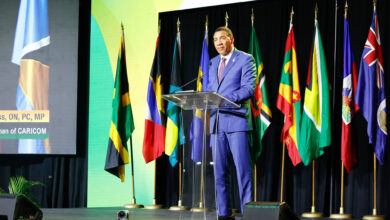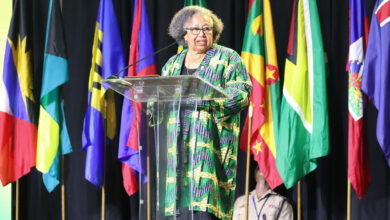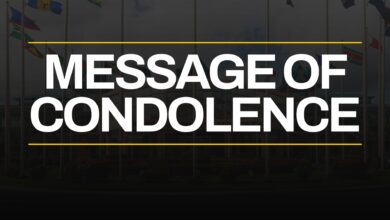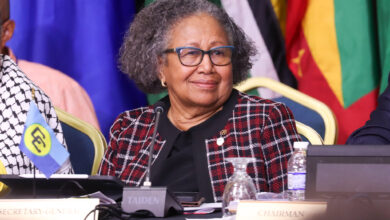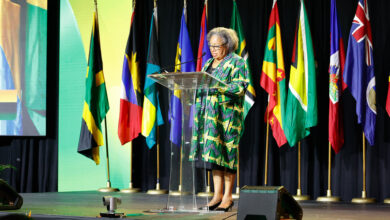The Second Meeting of Directors of Youth of the Caribbean Community (CARICOM) was held in Trinidad and Tobago May 7 – 9, 2001 under the chairmanship of Mr. Wilton John, Director of Youth Affairs. Participants were drawn from Member States and included Directors of Youth and representatives of regional and international agencies, educational institutions and youth organisations.
The primary objective of the meeting was to consider the appropriateness and feasibility of the goals, targets and indicators contained in a Draft Regional Strategy For Youth Development (DRSYD). The DRSYD is a broad framework intended to assist Member States in consolidating and integrating the outcomes of previous assessments and initiatives; and planning and adopting integrated inter-sectoral approaches to youth development and empowerment.
Delegates discussed a range of issues subsumed under the thematic priorities of the DRSYD, namely research, institutional strengthening and human resource development (HRD), youth participation, youth poverty and youth health; and identified initiatives on the ground, gaps and actions required to facilitate the goal of creating an enabling environment for building youth capital with equity, inclusion and social justice.
The major recommendations arising out of the meeting are summarised below.
Research
The meeting identified the need for a regional youth development data base to inform policy formulation, planning and evaluation processes; and proposed that the CARICOM Secretariat appoint a task force to develop the data base structure, including indicators to measure regional and international commitments made in various sectors, data sets and mechanisms for standardising information on youth. It was further recommended that the process begin with the compilation of existing information such as rapid assessments, school leavers surveys, adolescent heath surveys and youth profiles.
Institutional strengthening and HRD
Delegates identified the need to professionalise youth work and develop a career structure for youth workers from the grass roots to the professional level, and in this regard recommended that CARICOM appoint a task force to design a comprehensive credentialing system linked to the regional accreditation process and informed by both the experience of training Regional Youth Ambassadors (RYAs) and the findings of the CYP diploma pilot study. The meeting further recommended that the Commonwealth Youth Programme take the lead in training youth workers, and the CARICOM Secretariat in the development of young leaders.
Youth Participation
The meeting recommended that CARICOM develop a model for effective participation in decision making as a guide for Member States; and provide technical assistance to strengthen the institutional and leadership capacity of the Caribbean Federation of Youth (as the regional representative of youth), focusing on the establishment/ strengthening of Member Councils. The consultant's report on the modalities for establishing and maintaining youth parliaments is to be circulated to National Youth Councils for comment.
Youth Poverty
The meeting highlighted the need to provide attractive social and economic alternatives for vulnerable and marginalised young people, and recommended that CARICOM, UNICEF and PAHO collaborate in the expansion of the school-based regional Health and Family Life Education Programme to out-of-school youth. Governments, with the assistance of regional and international agencies, are encouraged to sponsor skills training and entrepreneurial programmes which would empower young people to become involved in industry and set up their own businesses in areas which would permit them to enter the labour market above entry level such as information technology, culture, theatre arts and tourism.
Adolescent Health
The meeting highlighted the need to equip young people with appropriate knowledge, skills and attitudes to make informed responsible decisions about health and well-being; and for youth organisations be more proactive in ensuring that youth perspectives inform the design, delivery and evaluation of national (health) programmes executed by organisations empowered to implement regional and international agreements entered into by governments. These agreements include the Convention on the Rights of the Child, the Regional Action Plan on Adolescent Reproductive Health and the regional Strategy for HIV/AIDS.
The Way Forward
Agencies within the United Nations system have agreed to set up a youth theme group to support the operationalisation of the DRSYD. The CARICOM Secretariat will circulate the revised DRSYD to Member States and request them to provide feedback on national priorities, weaknesses, gaps, indicators and resource requirements. The Secretariat will submit a report on the DRSYD to the Vth Council for Human and Social for consideration and action.

